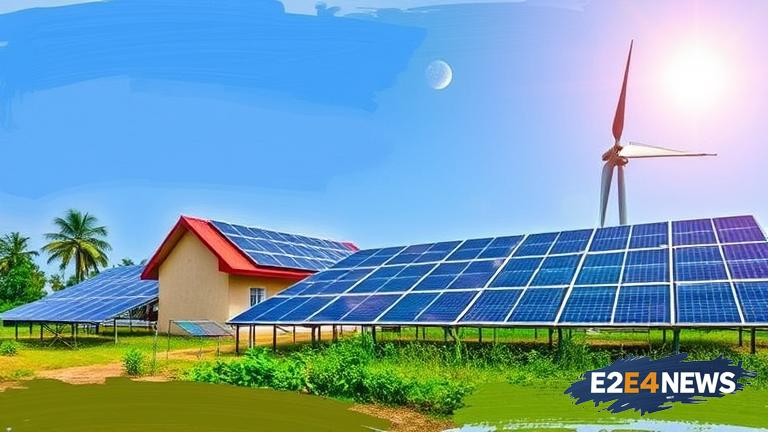Sri Lanka, an island nation in the Indian Ocean, is embracing renewable energy as a vital component of its sustainable development strategy. The country’s growing energy demands, coupled with the need to reduce its reliance on fossil fuels, have led to a significant increase in investments in renewable energy sources, particularly solar power. The Sri Lankan government has set ambitious targets to increase the share of renewable energy in the national energy mix, with a focus on solar and wind power. The country’s renewable energy sector is expected to play a crucial role in reducing greenhouse gas emissions and mitigating the impacts of climate change. Solar power, in particular, has emerged as a promising option, with the country’s tropical climate and abundant sunshine making it an ideal location for solar energy generation. The government has introduced various incentives and policies to encourage the adoption of solar power, including tax breaks, subsidies, and net metering schemes. As a result, the number of solar installations in Sri Lanka has increased significantly, with both residential and commercial sectors investing in solar energy systems. The growth of the solar industry has also created new job opportunities and stimulated local economies. Furthermore, solar power has the potential to provide energy access to remote and off-grid communities, which are often deprived of reliable and affordable energy services. The use of solar power can also reduce the burden on the national grid, decreasing the likelihood of power outages and improving overall energy security. In addition to solar power, other renewable energy sources, such as wind, hydro, and biomass, are also being explored in Sri Lanka. The country’s renewable energy sector is expected to attract significant investments in the coming years, with both local and international companies showing interest in the market. The government’s commitment to renewable energy is also reflected in its Nationally Determined Contributions (NDCs) under the Paris Agreement, which aim to reduce greenhouse gas emissions and promote sustainable development. Sri Lanka’s renewable energy revolution is not only crucial for the country’s economic and environmental sustainability but also for its energy security and independence. The country’s experience in promoting renewable energy can also serve as a model for other developing countries in the region. However, there are also challenges that need to be addressed, including the high upfront costs of renewable energy technologies, lack of awareness and education, and the need for grid infrastructure upgrades. To overcome these challenges, the government and private sector must work together to create an enabling environment for renewable energy development. This includes investing in research and development, improving energy storage technologies, and promoting public-private partnerships. In conclusion, Sri Lanka’s shift towards renewable energy, particularly solar power, is a significant step towards a sustainable and environmentally friendly future. The country’s commitment to reducing its carbon footprint and promoting clean energy is commendable, and its experience can serve as a valuable lesson for other countries in the region. With continued investments and support, Sri Lanka’s renewable energy sector is poised to play a vital role in the country’s economic and environmental development.
